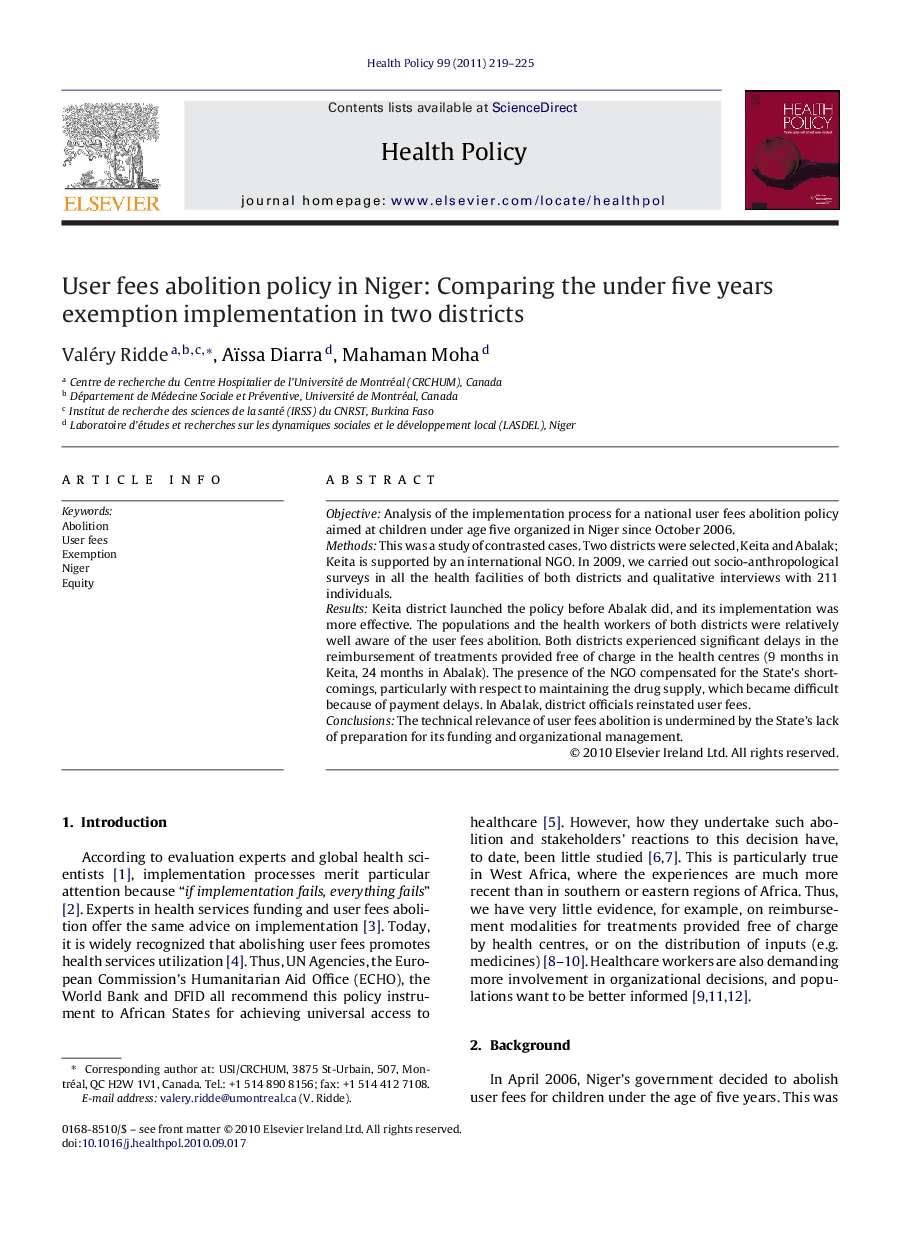| Article ID | Journal | Published Year | Pages | File Type |
|---|---|---|---|---|
| 6240178 | Health Policy | 2011 | 7 Pages |
ObjectiveAnalysis of the implementation process for a national user fees abolition policy aimed at children under age five organized in Niger since October 2006.MethodsThis was a study of contrasted cases. Two districts were selected, Keita and Abalak; Keita is supported by an international NGO. In 2009, we carried out socio-anthropological surveys in all the health facilities of both districts and qualitative interviews with 211 individuals.ResultsKeita district launched the policy before Abalak did, and its implementation was more effective. The populations and the health workers of both districts were relatively well aware of the user fees abolition. Both districts experienced significant delays in the reimbursement of treatments provided free of charge in the health centres (9 months in Keita, 24 months in Abalak). The presence of the NGO compensated for the State's shortcomings, particularly with respect to maintaining the drug supply, which became difficult because of payment delays. In Abalak, district officials reinstated user fees.ConclusionsThe technical relevance of user fees abolition is undermined by the State's lack of preparation for its funding and organizational management.
